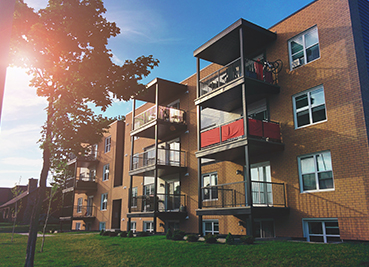
The bill allowing local governments to impose rent control ordinances cleared the state House on Monday, but its future as it heads to the state Senate is up in the air.
Under current law, the state bars local governments from adopting policies to control rent or keep rates low.
House Bill 1115 would lift that state preemption, allowing local governments to impose such policies if they choose to do so, according to Rep. Javier Mabrey, D-Denver, one of the bill’s prime sponsors.
HB 1115 passed on a 40-24 vote in the state House on Monday with five Democrats representing Colorado Springs, Durango, Denver, Westminster and Highlands Ranch voting “no,” along with the chamber’s 19 Republicans.
The measure is among several approaches policymakers are considering as an answer to Colorado’s acute housing shortage.
Supporters say rent prices are out of control and that allowing local governments to impose rent stabilization measures could help with the escalating crisis in affordable housing. The measure’s critics, meanwhile, argue that imposing rent control helps people in the short term but that, in the long run, it decreases affordability, fuels gentrification and creates “negative spillovers” onto surrounding neighborhoods.
Colorado’s housing needs are acute. One study says that, just in the past seven years, the cost to buy a home has doubled, with half of that spike occurring in the last two years, even as household income has not kept pace. The study also says that, through 2021, the housing deficit stood between 25,000 and 117,000 units and the state needs 20,000 and 46,000 permits each year through 2025 to close that gap.
When HB 1115 came up for second reading debate last Friday, all eyes were on what the sponsors might do to make the bill palatable to the governor, who is “skeptical” about the need for rent control.
But the only change lawmakers adopted was to exempt nonprofit organizations that own affordable housing from the proposal’s provisions. Mabrey said those organizations already utilize rent “stabilization,” so there is no need to include them in the measure.
A spokesman for Gov. Jared Polis said recently the governor is “skeptical that rent control will create more housing stock, and locations with these policies often have the unintended consequences of higher rent.”
It also means Polis may be relying on Senate Democrats to put the bill into the trash can and avoid having to use his veto pen on a bill strongly favored by progressive Democrats, including some — but not all — of the candidates running for Denver mayor.
Colorado’s prohibition on rent control dates back to a 1981 state law, a response to a citizen initiative in Boulder that imposed rent control, and a 2000 Colorado Supreme Court ruling on an ordinance from Telluride.
The 1981 state law said rent control on private residential housing is a matter of statewide concern and local governments cannot enact ordinances or resolutions that would “control rent on either private residential property or a private residential housing unit.”
As introduced, HB 1115 would repeal that section of statute. It also strikes a similar section of statute that applies to land use regulation in which rent control is imposed on newly constructed or redeveloped housing.
House lawmakers debated the bill for close to four hours on Friday, with supporters making the argument that local governments should be able to make their own decisions about rent stabilization.
Whether lawmakers will sing the same tune when the majority’s package of affordable housing bills surface in the coming weeks — some which are expected to attempt to strip away local government authority on issues such as building codes and zoning — is a larger question.
“We all want our constituents to be able to live the dream of buying a home and building intergenerational wealth,” Mabrey said on Friday.
This bill can open the door to that for Colorado renters, he added.
Mabrey’s employer, the Community Economic Defense Project, has hired three lobbyists to convince legislators to support the bill.
Rep. Jenny Willford, D-Northglenn, added the bill allows local elected officials, who are closest to the people, to solve the problem their communities face. Co-sponsor Rep. Elizabeth Velasco, D-Glenwood Springs, also championed the local control argument, saying local communities should be able to create their own solutions.
Rep. Marc Catlin, R-Montrose, said the problem is not rent control — it’s the lack of available units.
Catlin said the worry is that landlords would, as a result of the legislation, sell their units and get out of the market altogether, shrinking the rental market and making the housing crunch worse.
“We haven’t delved deep enough into the problem,” he said, adding that policymakers are trying to solve the problem from an urban point of view.
Lawmakers said they have received hundreds of emails about the bill.
The debate continued on Monday in advance of the bill’s final House vote.
None of the Western Slope communities is set up to do this, said Rep. Rick Taggart, R-Grand Junction, who called the bill an unfunded mandate for local governments.
“We haven’t put anything aside to help them, with budgets that are extremely tight … we’ve dumped another responsibility” on them, he said. “Is this local control or is this legislature forcing something on local governments that they’re not prepared for?”
Velasco countered that people should be able to live and work in the same community and her district has been heavily affected by wildfires.
“When people don’t live where they work, it puts their lives at risk,” she said, adding her district only has one major highway when a wildfire forces evacuation.
“I know too well the rural-urban divide,” Velasco said. “This is good for rural communities and workers.”
While House Democrats have greenlighted HB 1115, its journey through the state Senate may hit a stop sign.
One of those signs came during a mayoral debate last Friday hosted by the Colorado Association of Realtors, when Sen. Chris Hansen, D-Denver, weighed in squarely against the bill, the second time he has done so in a debate this month.
“The clear answer is no,” Hansen said, in response to a question about the bill. “I do not see this bill making it out of the Senate just so you know. I think we don’t have a path forward for this legislatively. And I would just say I think we’ve had much better success with income qualified approaches and I think Denver needs to build on that success, which is what I was sharing with you earlier.”
In the Senate, the bill could be assigned to one of several committees, with the Local Government and Housing Committee as the most likely panel. But with a slim 4-3 Democratic majority, it would take only one Democrat to switch sides and vote the bill down.




